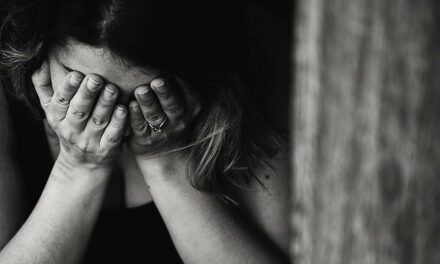Dizziness and lightheadedness are not illnesses, and yet they are one of the common reasons why we visit the doctor. are common complaints that often lead people to seek medical advice. However, distinguishing between these two symptoms is crucial, as they have different underlying causes and require distinct treatments. In this comprehensive guide on Dizziness and Lightheadedness, we will delve into the intricacies of dizziness and lightheadedness, providing first-hand experience and expert insights to help readers better understand these conditions.
Most times, when people complain about feeling dizzy, actually they may be referring to either vertigo or lightheadedness. A lot of people use these terms interchangeably.
One needs to be able to differentiate between vertigo and lightheadedness, (or dizziness from lightheadedness) because they are not the same.
Although both of them can be symptoms of serious hidden medical conditions and can cause imbalance and make you fall, both are different symptoms, with different causes that require different treatments.
Vertigo is mostly caused by neurological or inner ear problem when the brain is getting false information from the inner ear on the head and body position in relation to gravity.
In comparison, the light-headedness occurs when the brain is not getting enough blood and oxygen, which can be caused by dehydration and hyperventilation.
So, you differentiate the two correctly can help your doctor to come up with the list of the possible cause of the problems which will lead to the right diagnosis and treatment.
What do We mean by Dizziness?
Dizziness is defined as the situation whereby you feel that you or everything around you is moving or spinning while in reality, you and everything around you is still. Technically, this condition is known as vertigo.
In vertigo, you may feel as if you are spinning, falling or tilting.

Dizziness is the feeling of being unstable. It’s mostly caused by inner ear, brain or heart conditions or the use of some medications.
You may vomit or feel nauseated, and you may also find it difficult to walk or stand, or even lose your balance and fall if vertigo is very severe.
So, What’s Really Happens in Vertigo?
The brain uses the sensory information sent from four sensory systems, which are:
the eyes,
the inner ear,
the skin, and
the sensory nerves.
The information then processed in the brain to maintain your sense of balance and body position in relation to your surroundings.
Vertigo is caused when the inner ear sends false signals to your brain that conflicts with the information your eyes and sensory nerves are sending to the brain.
Causes of Dizziness and Vertigo
Based on my in-the-field experience, I have encountered several common causes of both dizziness and lightheadedness. Here are the causes of dizziness; for more details of each, please read the subsequent sections too.
| Cause | Description |
|---|---|
| Benign paroxysmal positional vertigo (BPPV) | Loose debris in the inner ear affecting balance receptors, causing vertigo. |
| Meniere’s disease | Fluid buildup in the inner ear and pressure changes, leading to vertigo, ringing in the ear, and hearing loss. |
| Vestibular neuritis or labyrinthitis | Inflammation of the inner ear nerves, often caused by viral infections. |
| Low blood pressure (Hypotension) | Drop in blood pressure affecting brain function and causing dizziness. |
| Medication side effects | Certain medications, like those for high blood pressure, epilepsy, stroke, and tumors, can induce dizziness. |
| Anxiety and migraines | Psychological and neurological factors that trigger dizziness. |
The following are some of the most common causes of vertigo or dizziness.
Benign paroxysmal positional vertigo (BPPV)
Benign paroxysmal positional vertigo (BPPV) is the most common cause of vertigo. This a situation whereby loose debris/calcium in the inner affects the balance receptors, this can result in a feeling of vertigo. BPPV may be associated with aging, but there is no known cause.
Meniere’s disease
Vertigo can also be a secondary effect of Meniere’s disease. Meniere’s disease is caused by the build-up of fluid in the inner ear and a change in pressure in the ear. It can cause ringing in the ear initially and then even loss of hearing.
Ear inflammation
Another cause of dizziness is vestibular neuritis or labyrinthitis, which is the inflammation of the inner ear around the nerves from the brain connects to sense balance.
Ear infections commonly start as a result of viral infection.
Low blood pressure (Hypotension)
Tip: Here are the causes of hypertension and early signs and symptoms.
Low blood sugar (Hypoglycemia)
Tip: People with diabetes are prone to low blood sugar. Knowing the early warning signs of prediabetes and diabetes, and the symptoms specific to men, women and children are the key to managing blood sugar levels well. After all, you must not get caught up with diabetes myths regardless of your blood sugar condition is due to Type 1 or Type 2, or Diabetes Mellitus or Diabetes Insipidus, or pregnancy-related diabetes.
Tip: Diabetes patients should be extra careful when they travel. Here are the Tips for Air, Sea and On-Road Travel with Diabetes.
Diseases of the hearts
For example, due to heart conditions like cardiac arrhythmia.
Injury on the head or neck
Tip: Upper spinal column conditions such as bulging disc and disc protrusion can lead to excruciating upper back pain, could also result in dizziness. In this case, you must differentiate kidney pain from back pain – kidney pain is most likely a medical emergency!
As a side-effect of certain medication, you may be taking.
For example, medication for high blood pressure, epilepsy, stroke and tumors could cause dizziness.
Anxiety and migraines can also trigger the feeling of dizziness.
Tip: Watch for migraine symptoms and triggers.
Tip: Anxiety symptoms in women are likely different from anxiety symptoms in men.
Tip: This article contains must-known differences between a panic attack and a heart attack. And, the difference between a panic attack and anxiety attack.
Symptoms of Dizziness and Vertigo
People with vertigo characteristically describe to their doctors as they feel like they are spinning with of the following symptoms, some of which can last a few minutes to a few hours or more and may come and go.
Here are the key symptoms associated with dizziness.
- Loss of balance
- Partial loss of vision or double vision
- one or both sides of the body left like ‘paralyzed’
- Slurred speech
- Weakness
- Ringing in the ears
- Vomiting, which some time can be ‘severe’
- Feeling of confusion
- Headache
- Sweating
Tip: Prolong weakness and tiredness can be a sign of Chronic Fatigue Syndrome too. If that’s the case, you may be eligible for a Disability Claim.
Treatment for Dizziness and Vertigo
Most times depending on the cause of vertigo, the doctor would not recommend any form of medicine because most times vertigo will go on it own as the brain learns to use the other senses to balance the imbalance caused by the condition of the inner ear.
But, when vertigo occurs more often and is severe, the doctor can recommend the best treatment option for you from the few treatment options available for treating vertigo.
However, since vertigo is not a sickness on its own but a symptom of another condition (disease), the treatment options most times has to do with treating the condition that causes vertigo.
The following are the key treatment options for treating vertigo.
Vestibular rehabilitation
The treatment ‘vestibular rehabilitation’ is recommended if vertigo is surface as a result of problems with the inner ear, especially if the vertigo is severe and if it occurs more often. This treatment will help to restore one sense of balance using other senses.
Canalith repositioning procedure
This treatment involves the use of specially designed exercise known as the Epley Maneuver to get the pieces of debris/calcium back in place. After one to three treatments, most people do feel better.
Medication for dizziness
Drugs are used to alleviate the symptoms so that the patient can feel better, but they do not really cure dizziness.
Migraine prevention
This can help to relieve dizziness if the underlying cause of the vertigo is a migraine.
Non-medical intervention
Counseling and cognitive-behavioural therapies could help reduce the occurrence and severity of vertigo if it as a result of anxiety.
Surgery
Surgery can resolve severe cases of vertigo if it is as a result of tumor in neck/head or brain injury.
Now let’s look deeper into lightheadedness.
What do We mean by Lightheadedness?
Lightheadedness is when you feel as if you are about to faint or pass out. Lightheadedness often goes away or reduces when you lie down. When lightheadedness gets worse, it can lead a fainting spell (syncope). Vomiting or feeling of nausea is one of the symptoms associated with lightheadedness.
It is not unusual to feel lightheaded once in a while. In that case, it is not usually caused by a serious problem. However, if lightheadedness occurs more often when you suddenly stand up from lying or sitting position that’s something require your doctor’s attention.

To change your posture, your brain requires more blood flow and oxygen, and when blood pressure is low you will feel lightheaded. This is called orthostatic hypotension which is as a result of low blood pressure.
The frequent occurrence of lightheadedness can be an indication that you have a serious problem, so you need to see your doctor for proper evaluation.
Generally, lightheadedness can be an indication of a temporary shortage of blood or oxygen to the brain due to a drop in blood pressure and rapid dehydration.
Tip: Here are the symptoms of high blood pressure.
Causes of Lightheadedness
Based on my patient’s experience, I have encountered several common causes of both lightheadedness. Here are the causes; for more details of each, please read the subsequent sections too.
| Cause | Description |
|---|---|
| Sudden drop in blood pressure (Orthostatic hypotension) | Change in posture leading to reduced blood flow to the brain. |
| Allergies, common illnesses, depression, stress | Factors contributing to lightheadedness in certain situations. |
| Tobacco, alcohol, or illicit drugs use | Substances affecting blood pressure and causing lightheadedness. |
| Illnesses causing dehydration | Food poisoning, heat acclimation issues, vomiting, diarrhea, or fevers leading to lightheadedness. |
The common cause of lightheadedness is a sudden drop in blood pressure (orthostatic hypotension) when a person rapidly changes position. But, that’s not all.
Other causes of lightheadedness are:
- Allergies
- Common illnesses such as the flu or colds.
- Depression and anxiety
- Stress
- Shock/panic attacks
- Tobacco, alcohol or illicit drugs use.
- Low blood sugar.
- Illnesses that cause dehydration such as food poisoning, heat acclimation issues, vomiting, diarrhea or fevers.
- Some medications can have lightheadedness as a side effect.
- Heat exhaustion and heatstroke.
When the body temperature rises high to a dangerous level, it can make one to be confused or to lose consciousness. This usually occurs when one is in a hot environment.
Tip: Here are tips on adjusting to the heat and hot temperatures.
Tip: Fever could cause hallucinations too.
Tip: Stress symptoms can be different in men from women. Similarly, panic attack symptoms in women could be different from men.
Sometimes, lightheadedness may also have more severe underlying causes, which usually accompanied by other symptoms.
Some of the critical medical conditions display lightheadedness as one of the key symptoms are below.
Hyperventilation
Hyperventilation is a symptom whereby one’s breathing is deeper or faster than normal. With hyperventilation, the amount of carbon dioxide (CO2) in the blood could drop too low, which can result in lightheadedness.
Irregular heartbeat
Arrhythmia (an abnormal heartbeat) can also be a cause of lightheadedness.
Arrhythmia is any change in the normal heartbeat. Arrhythmia is either when the heartbeat is too fast (tachycardia) or when the heartbeat is too slow (bradycardia). Both of them can result in fainting spells.
Bleeding
Blood loss and internal bleeding is a serious cause of lightheadedness. Heavy menstruation, an accident that leads to serious blood loss, and sometimes occult bleeding (i.e. bleeding that is not obvious) like bleeding in your digestive tract can cause lightheadedness.
Anemia
Anemia which is the decrease in red blood cell (or hemoglobin) circulating the body can also cause lightheadedness.
Heart attack
lightheadedness can be a symptom of heart attack, especially if it is accompanied by other symptoms like dizziness and chest pain.
Stroke
A stroke usually occurs when the brain does not get enough blood supply, oxygen or nutrients, and as consequence brain cells begin to die.
Stroke can cause lightheadedness accompanied with other symptoms like confusion, double or partial vision and paralysis in one or both sides of the body.
Neurological conditions
For example, multiple sclerosis and Parkinson’s disease can also cause lightheadedness.
Head injury
Symptoms of Lightheadedness
Another way to describe lightheadedness is as a reeling sensation, which may be accompanied by
- A clouded vision
- A loss of balance.
- Nausea or vomiting
- Dizziness
How to Manage Lightheadedness?
If you experience lightheadedness, you can manage it with the following home remedies and lifestyle changes.
- Do not suddenly change your posture or position. When you are in a lying position, get up slowly and stay seated for a few seconds before standing. You can also hold on to something when you stand up and when you are in a sitting position. Do not stand up suddenly when you want to stand rather do so slowly.
- Do not go into bright light. Bright lights can worsen the effect of lightheadedness.
- If you are on prescription drugs, talk to your doctor – your medication may be the cause of your lightheadedness.
- Do not drive if you feel lightheaded.
- Talk to someone and seek help when you feel you are going to faint.
- Drink lots of water, especially in hot weather or during exercise.
- Always get enough sleep.
- Stay away from caffeine, tobacco, and alcohol.
- Cut down your salt intake.
Treatment for Lightheadedness
Just like dizziness, lightheadedness most likely does not require any medical treatment but depending on the cause of the lightheadedness, your doctor may recommend any of the following treatment options.
- Action plan – Lying down when you feel lightheaded.
- If lightheadedness is as a result of dehydration,
- a. Drink more water
- b. Receive intravenous fluids if you are dehydrated and cannot keep down liquid (you are vomiting)
- c. Drink fluids that contain electrolytes.
- Eat or drink something, if your lightheadedness is as a result of low blood sugar.
- Your doctor may prescribe some medication to manage the cause of the lightheadedness such as:
a. antihistamine, if the cause of the lightheadedness is an allergen, cough or cold.
- b. Anti-anxiety medications, if your lightheadedness is caused by anxiety.
- c. Anti-nausea or medications for migraine, if the cause of your lightheadedness is nausea or migraine
- d. Water pills (diuretics)
- Your doctor may also recommend psychotherapy or cognitive-behavioural therapy (CBT) if your lightheadedness is as a result of anxiety (or depression) to help them manage the condition.
- You can also try compression stockings to improve blood circulation if you experience blood pressure issues.
Tip: Here are the best treatment options for hypertension based on stages of blood pressure.
Dizziness vs. Lightheadedness: Expert Explanation
Dizziness is commonly referred to as a feeling of instability, wherein individuals experience a false sense of movement or spinning of their surroundings while they remain stationary. In medical terms, this sensation is termed “vertigo.” Vertigo can be caused by various factors, including inner ear problems, neurological issues, heart conditions, or certain medications.
On the other hand, lightheadedness presents as a sensation of near-fainting or passing out. It often improves when individuals lie down and is typically associated with a drop in blood pressure and reduced blood flow to the brain, medically referred to as “orthostatic hypotension.” Lightheadedness can stem from factors like dehydration, allergies, stress, anxiety, low blood sugar, or certain medications.
| Treatment | Description |
|---|---|
| Vestibular rehabilitation | Exercises to restore balance, particularly useful for inner ear-related dizziness. |
| Canalith repositioning procedure | Using the Epley Maneuver to reposition debris in the inner ear and alleviate vertigo. |
| Medication for dizziness | Symptomatic relief, but not curative. |
| Migraine prevention | Managing migraines to reduce dizziness. |
| Non-medical intervention | Counseling or cognitive-behavioral therapy for dizziness linked to anxiety. |
| Surgery | Reserved for severe cases with structural issues or tumors. |
As someone who has experienced occasional lightheadedness, especially when rapidly changing positions, I have found the following lifestyle adjustments and home remedies helpful:
- Gradually changing posture to avoid sudden drops in blood pressure.
- Avoiding bright lights that can exacerbate lightheadedness.
- Consulting a healthcare provider to review medications that might contribute to lightheadedness.
- Abstaining from driving if feeling lightheaded to ensure safety.
- Staying well-hydrated, especially in hot weather or during physical activity.
- Prioritizing adequate sleep and stress management to minimize lightheadedness episodes.
Similarities between Dizziness and Lightheadedness
Some of the key similarities between dizziness and lightheadedness are below.
- Both symptoms may have similar characteristics.
- If you experience the symptoms regularly, both dizziness and lightheadedness are likely to be symptoms of an underlying medical disease.
- Both of them, when severe are associated with nausea and vomiting.
Difference between Dizziness and Lightheadedness
Here are the key differences between dizziness and lightheadedness.
- Dizziness is when you feel that the world around you is moving or spinning while it is not while lightheadedness is when you feel as if you are about to faint or pass out.
- Lightheadedness is as a result of a drop in blood pressure and blood flow to the brain whereas dizziness is mostly related to an ear condition
- When lightheadedness gets worse, that can lead to a fainting spell (syncope). When the vertigo is severe, you may also find it difficult to walk or stand, or even lose your balance and fall.
- Light-headedness occurs when the brain is not getting enough blood and oxygen while vertigo occurs when the brain is not getting the right instructions from the inner ear about the position of the head and body, in relation to the gravity. (how to balance the world in front of it)
- Dizziness is hardly a sign of a life-threatening condition. Lightheadedness can be a sign of a very serious condition.
Tip: People with regular dizziness and lightheadedness are prone to falls, and injuries could be common as a result. Always stick to one of the best wound dressings to heal wounds fast.
Differentiating the Symptoms: A Personal Perspective
Differentiating the symptoms of Dizziness and Lightheadedness can be challenging for many. As someone who has encountered patients with both dizziness and lightheadedness, I can emphasize the importance of accurate differentiation. Patients often describe their experiences with various symptoms, ranging from a spinning sensation, vomiting, and difficulty walking for those with vertigo, to a feeling of faintness, clouded vision, and loss of balance for individuals with lightheadedness.
When to Seek Medical Attention for Dizziness and Lightheadedness
Seek medical attention quickly if you experience any of the following.
- You have lost a considerable amount of blood, and you are feeling lightheaded.
- Your dizziness and lightheadedness is accompanied by symptoms of heart attack, stroke or transient ischemic attack (TIA) such as
a. Facial paralysis or numbness
b. Chest pain or pressure in the chest
c. Shortness of breath
d. Sweating
e. Vomiting or nausea
f. Loss of function in one part of the body
g. Incoherent speech, blurry or double vision
- your lightheadedness continues for a week or more.
- You sustained an injury as a result of your dizziness or lightheadedness.
- Your lightheadedness or dizziness with time has worsened.
Call an ambulance or a loved one to take you to a hospital, don’t attempt to drive yourself if you experience any of the above, or if you think you need urgent medical care.
Conclusion
Vertigo (dizziness) and Lightheadedness are not unusual, but most of the time they resolve on their own without side effects or complications. People who often experience lightheadedness can manage the symptoms at home.
But, you need to be more careful, especially if you are prone to vertigo and lightheadedness and if you experience it with other symptoms like partial or double vision, confusion, pain, paralysis of any part of the body and incoherent speech, vomiting and headache – in that case, call for an ambulance immediately to take you to the hospital.
Tip: Garlic could lower blood pressure, so think twice if you take garlic and experience dizziness due to hypotension.
Tip: Thumper Massager can improve your overall health.
Tip: Here are the best home blood pressure monitors of the year.







Dear Shani Liyanage Team,
I wanted to express my sincere gratitude for the informative and comprehensive guide on dizziness and lightheadedness that you recently published on your website. The article provided valuable insights into these commonly experienced symptoms and shed light on the important distinction between them.
The clarity and depth with which you explained the underlying causes and distinct treatments for dizziness and lightheadedness were truly remarkable. The first-hand experiences shared in the guide added a personal touch, making it relatable and easy to comprehend for readers like myself.
By addressing the misconceptions surrounding dizziness and lightheadedness, you have not only helped individuals gain a better understanding of their symptoms but also empowered them to make informed decisions about seeking medical advice. Your dedication to providing accurate and reliable information is truly commendable.
I am grateful for the time and effort your team invested in creating such a valuable resource. This guide will undoubtedly serve as a go-to reference for those seeking knowledge about dizziness and lightheadedness. Please accept my heartfelt appreciation for your commitment to delivering high-quality content that educates and enlightens.
Thank you once again for sharing this insightful guide. I look forward to exploring more of your informative articles in the future.
Warm regards,
Alquante Foster
Dear Alquante,
Thank you so much for your heartfelt and appreciative feedback on the article about the distinction between dizziness and lightheadedness. As an expert on the topic, I am truly grateful for your kind words and am thrilled to know that you found the guide informative and comprehensive.
The MediChannel is dedicated to providing accurate and valuable information to our readers, and we are delighted to hear that the article shed light on the important differences between these commonly experienced symptoms. Clarifying the underlying causes and distinct treatments for dizziness and lightheadedness is vital in helping individuals better understand their symptoms and make informed decisions about seeking medical advice.
The inclusion of first-hand experiences in the guide was intentional, aiming to add a personal touch and enhance the article’s relatability and comprehension for our readers.
Addressing misconceptions surrounding dizziness and lightheadedness is part of our commitment to empowering individuals with knowledge and facilitating better healthcare decisions.
Your appreciation for our dedication to delivering high-quality and accurate content is truly motivating. We deeply value the time and effort invested in creating valuable resources like this guide, and we are grateful for the opportunity to share it with our readers.
We are glad to know that the guide will serve as a go-to reference for those seeking knowledge about dizziness and lightheadedness. Your encouraging words inspire us to continue delivering informative and enlightening articles in the future.
Thank you once again for your warm regards and appreciative feedback. If you have any more questions or need further information about dizziness, lightheadedness, or any other health-related topics, feel free to reach out. We are here to support you and provide valuable insights on your health journey.
Warmest regards.